In the atmosphere of the National Innovation Day 2025, the Vietnamese scientific community was honored to welcome Professor Serge Haroche, winner of the 2012 Nobel Prize in Physics.
Not only does he bring profound knowledge of quantum physics, he also shares profound insights into the role of basic research, ethics in science and the path for a developing country like Vietnam to participate in the global technological revolution.
The reporter had a conversation with Professor Serge Haroche to clarify more about the potential of the quantum revolution, the core role of basic research and the strategic path for Vietnam to rise up in the new technological era.
Hello Professor, this is your first time in Vietnam to share about quantum physics. What is your first impression of Vietnam and the young scientific community here?
- I just arrived so it is probably a bit early to give a full assessment, but I have had very good impressions. I know the young generation of Vietnam through the excellent students I met in Paris.
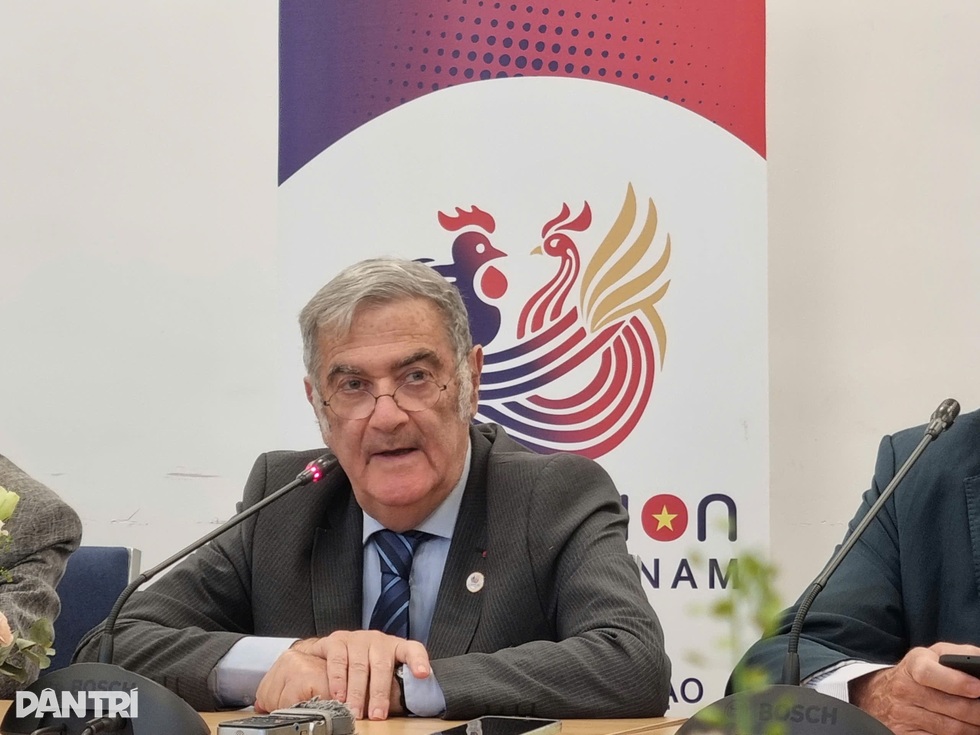
Professor Serge Haroche talks to reporters (Photo: Trung Nam).
Most recently, at the International Physics Olympiad, the Vietnamese delegation achieved very high results. This shows that your general education , especially at the secondary level, is of very good quality compared to the world average.
I believe that the most valuable asset of any country, including Vietnam, lies in the brains of the young generation.
We need to inspire and promote their passion for science, because science will play a key role in solving the great challenges of humanity: from climate change, health , aging population to the environment. To do that, the world needs scientists and especially physicists.
As a leading expert, how do you think quantum technology will change our lives in areas such as healthcare, communications or artificial intelligence (AI)?
- First of all, it is necessary to say that quantum physics has just celebrated its 100th anniversary. The first quantum revolution has brought us inventions that have completely changed the world: From the mobile phone you are holding, computers, GPS navigation systems, to magnetic resonance imaging (MRI) in medicine. All are products of understanding the quantum world.
Many people today wonder what quantum physics will bring. In fact, we are entering a second quantum revolution. With new techniques, we can now control and manipulate individual quantum objects such as atoms or photons - something that was previously impossible.
By manipulating individual atoms, arranging them as we wish, we can simulate the behavior of matter and one day discover entirely new states of matter, opening up groundbreaking applications in industry, medicine and communications.
However, in research, it is difficult to predict exactly what will happen. Basic research is always full of surprises; the people who laid the foundations of quantum physics a century ago could not have imagined the world we live in today.
You mentioned quantum computing, a concept that is getting a lot of attention. Does it have any connection to artificial intelligence?
- Quantum computers with computational capabilities far superior to conventional computers today are still a dream, an "unrealistic" project for the future. We still need a lot of basic research to find suitable materials to manufacture "quantum transistors" (qubits).
As for the connection with AI, there is almost none at the moment. These are two very different technologies. The only thing they have in common is that they both inspire a lot of hope and sometimes hype. We have to be careful. Science should not be overstated, otherwise it will lead to disastrous misunderstandings.
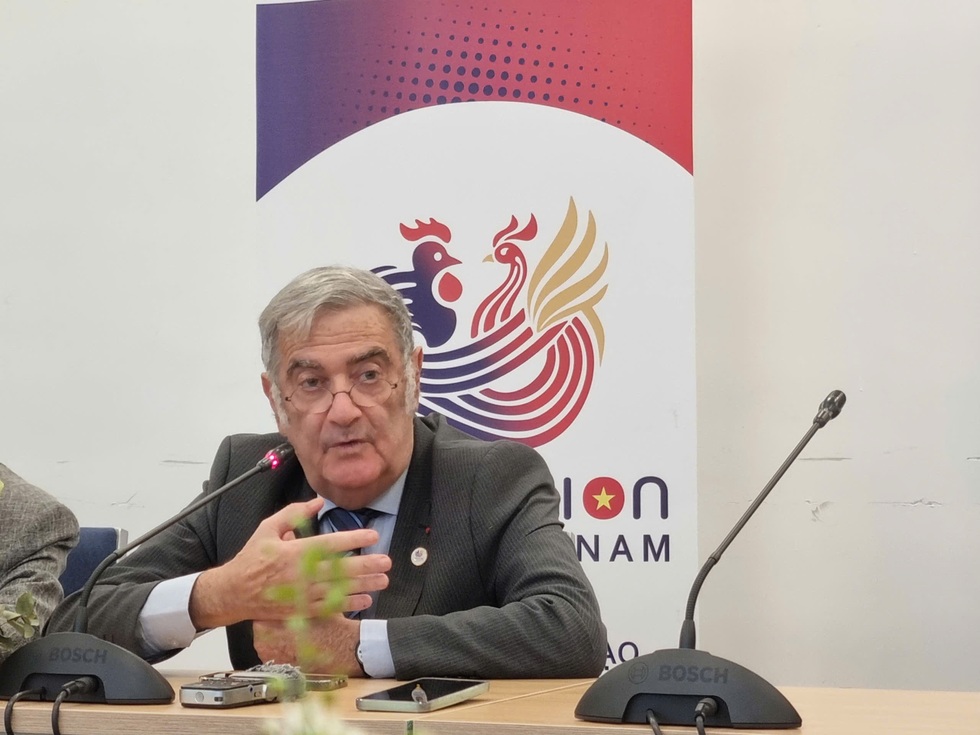
In my personal opinion, AI is not really “intelligence”. It is an extremely powerful tool that amplifies and deepens what human intelligence can do.
Speaking of AI, in my personal opinion, it is not really “intelligence”. It is an extremely powerful tool that amplifies and deepens what human intelligence does. It helps us process huge amounts of information. But I do not believe that AI is creative and will one day become “human”.
And like any invention, AI can be used for good or bad. Science is morally neutral. It is how humans use it that determines whether it advances or becomes a tool of manipulation. Therefore, we must be extremely careful with the development and application of AI.
As a developing country like Vietnam, where should we start to participate in the global "quantum race"?
- My advice is not only for quantum technology but for all other sciences. The foundation of everything must be basic research. That is the fertile ground to nurture all future applications.
To do that, we must first attract young, creative and brilliant minds to research. Show them the fascinating problems that the world needs to solve. The most fundamental motivation is curiosity.
Governments need to understand that research is only truly effective when it is free. Let researchers be free to choose their own areas of interest, rather than imposing specific, short-term goals. It is from this freedom of exploration that great discoveries are made.
An effective strategy for developing countries is:
- Build a good general education, especially in science, math, physics, and chemistry.
- Send excellent students abroad to study, do doctoral and post-doctoral work.
- The most important thing is to create conditions for them to return. Build structures and laboratories so that they can continue to develop their research careers in their homeland.
China has been very successful with this model.
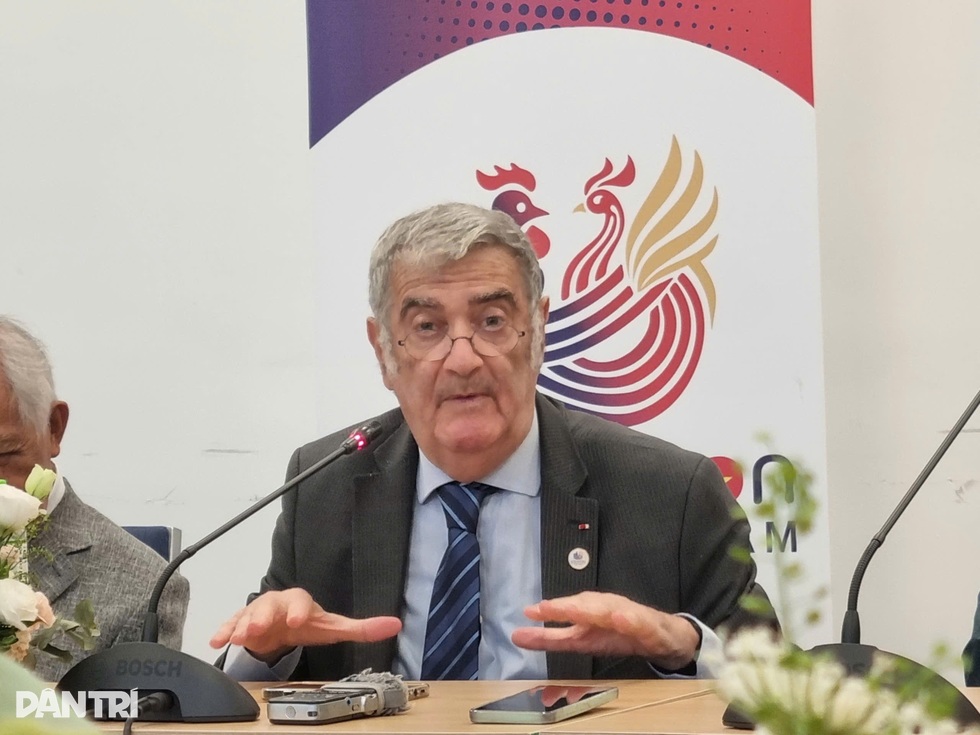
According to Professor Serge, the foundation of everything comes from basic research and so does quantum technology (Photo: Trung Nam).
This is a long-term effort that requires continued and sustained financial investment over decades. Governments need to understand that this investment will yield significant long-term results.
So what is your personal advice for young scientists and Vietnamese technology startups, sir?
- My advice to a young person who is passionate about science is: Choose a topic that really fascinates you. Try to find a field that you believe has a lot of potential for future development.
More than 50 years ago, I was fortunate to start my career at the time when laser technology was booming. I had an intuition that if I got into this field of quantum optics, there would be a lot to discover.
Today, too, there are many fascinating fields. You might be interested in astrophysics, searching for life on distant planets.
You can also tackle applied problems, such as how to capture CO2, or turn CO2 into useful energy instead of a pollutant. Find a specific problem, one that piques your curiosity, and stick with it.
What really brought you to quantum physics and how did you feel when you heard you won the Nobel Prize?
- My path to quantum physics was somewhat accidental. When I was studying at the École Normale Supérieure de Paris, I worked in a laboratory with fascinating professors.
They instilled in me a passion for the study of atoms and light. At the same time, the first lasers were being developed and I was fascinated by this magical light source.
As for the Nobel Prize, the first feeling was one of surprise and the realization that my life would change. Without this prize, I would not be sitting here giving interviews. It gives me the opportunity to share my views with the public, with policymakers.
Of course, my advice doesn't always work, often because of budgetary issues. I once joked with the French President that the budget I needed for my research was equivalent to "one espresso a month for every adult Frenchman." He laughed, and nothing happened.
That said, behind big ideas there is always a need for long-term financial resources and strong political will.
Thank you very much Professor for this conversation!
Professor Serge Haroche, born in 1944, is a French physicist famous worldwide for his fundamental contributions in the field of quantum physics.
He graduated from the École normale supérieure (ENS), one of the most prestigious educational institutions in France, and defended his doctoral thesis at the University of Paris VI (Pierre et Marie Curie) under the guidance of Claude Cohen-Tannoudji – Nobel Prize in Physics in 1997.
From his early studies of the interaction between light and matter, Serge Haroche observed quantum phenomena that were difficult to detect under normal conditions. These pioneering experiments opened up a major step forward in the field of quantum information, creating the foundation for the development of technologies such as quantum computers or highly secure communication systems.
Thanks to his outstanding contributions, he was awarded many prestigious scientific awards, including the Nobel Prize in Physics in 2012. Along with research, Serge Haroche always emphasizes the importance of investing in basic science, encouraging the younger generation to pursue their passion for discovery and affirming the role of quantum physics in solving the great challenges of humanity.
Source: https://dantri.com.vn/khoa-hoc/gs-nobel-vat-ly-muon-thang-ve-luong-tu-viet-nam-can-tu-nghien-cuu-co-ban-20251003124209051.htm


![[Photo] Bustling Mid-Autumn Festival at the Museum of Ethnology](https://vphoto.vietnam.vn/thumb/1200x675/vietnam/resource/IMAGE/2025/10/4/da8d5927734d4ca58e3eced14bc435a3)
![[Photo] General Secretary To Lam attends the 8th Congress of the Central Public Security Party Committee](https://vphoto.vietnam.vn/thumb/1200x675/vietnam/resource/IMAGE/2025/10/4/79fadf490f674dc483794f2d955f6045)
![[Photo] Solemn opening of the 8th Congress of the Central Public Security Party Committee, term 2025-2030](https://vphoto.vietnam.vn/thumb/1200x675/vietnam/resource/IMAGE/2025/10/4/f3b00fb779f44979809441a4dac5c7df)



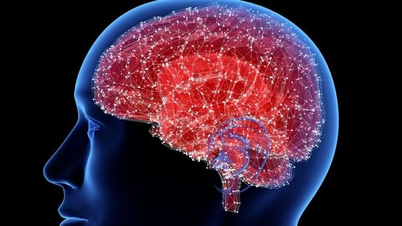

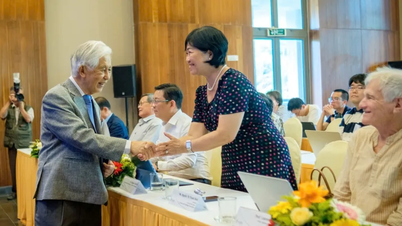

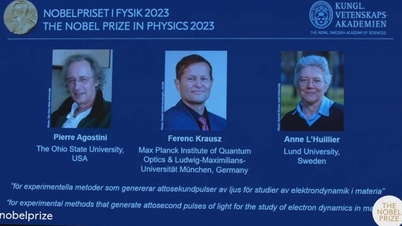

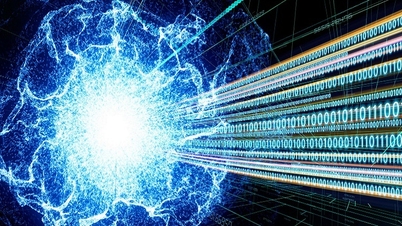

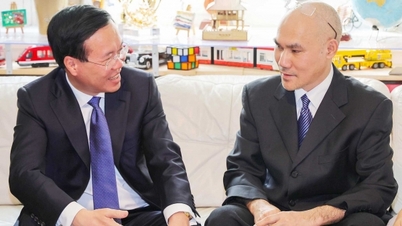


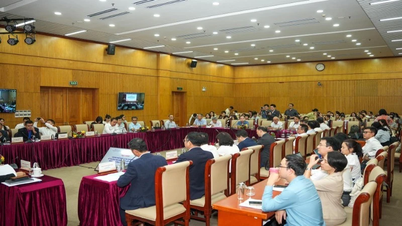





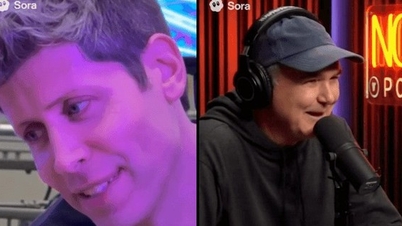










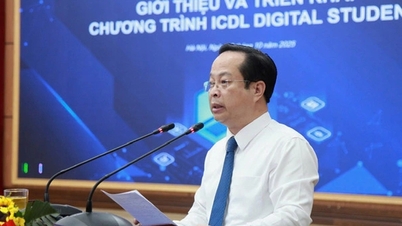























![[VIDEO] Summary of Petrovietnam's 50th Anniversary Ceremony](https://vphoto.vietnam.vn/thumb/402x226/vietnam/resource/IMAGE/2025/10/4/abe133bdb8114793a16d4fe3e5bd0f12)
![[VIDEO] GENERAL SECRETARY TO LAM AWARDS PETROVIETNAM 8 GOLDEN WORDS: "PIONEER - EXCELLENT - SUSTAINABLE - GLOBAL"](https://vphoto.vietnam.vn/thumb/402x226/vietnam/resource/IMAGE/2025/7/23/c2fdb48863e846cfa9fb8e6ea9cf44e7)



















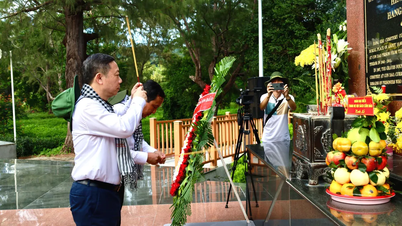
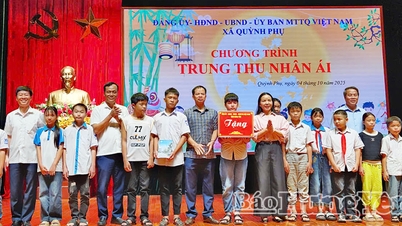






Comment (0)